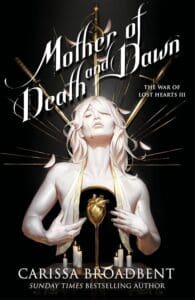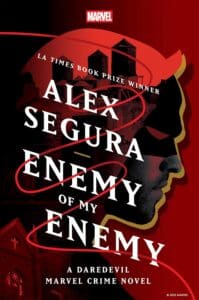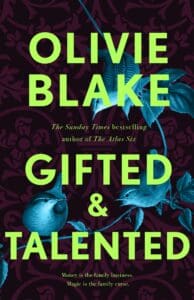
Synopsis:
Big-band frontman Johnny Favorite was singing for the troops when a Luftwaffe fighter squadron strafed the bandstand, killing the crowd and leaving the singer near death. The army returned him to a private hospital in upstate New York, leaving him to live out his days as a vegetable while the world forgot him. But Louis Cyphre never forgets.
Cyphre had a contract with the singer, stipulating payment upon Johnny’s death—payment that will be denied as long as Johnny clings to life. When Cyphre hires private investigator Harry Angel to find Johnny at the hospital, Angel learns that the singer has disappeared. It is no ordinary missing-person’s case. Everyone he questions dies soon after, as Angel’s investigation ensnares him in a bizarre tangle of black magic, carnival freaks, and grisly voodoo. When the sinister Louis Cyphre begins appearing in Angel’s dreams, the detective fears for his life, his sanity, and his soul.
Review:
I was thirteen or fourteen when I first saw Angel Heart, the steamy Micky Rourke vehicle that gave us Lisa Bonet as a seventeen year old voodoo priestess and Robert DeNiro as Lucifer in a violent and sexy neo-noir occult freak out with lots of twists and turns. I was never the same.
At fifty, I finally tracked down Falling Angel, the novel upon which Angel Heart is based, and while the two stories are different in some essential elements, I was thrilled to find that the novel presents a kick-ass story dripping with menace and hard boiled cool.
Harry Angel is a 1950s private dick in New York, and the city acts as a character here. The descriptions of the city, it’s buildings, and landmarks are so thorough, that one could draw a walking map of the plot. In fact, a trip upstate to investigate a mental hospital is as far from as the book takes us from the heart of the city. This came as a surprise, as the film is steeped in New Orleans atmosphere and is, if anything, a sultry Southern Gothic, but there’s something to be said for transferring the voodoo rites and satanic Black Masses to Manhattan. The film trades in atmosphere while Falling Angel plays continuously with the banality of evil that would sit comfortably beside Ira Levin’s Rosemary’s Baby. These monsters aren’t exotic. They’re all around you.
So, Angel is hired to track down a forgotten pop singer who vanished after the war, and his investigation brings him into all kinds of weird occult circles. He’s a typical noirish anti-hero with few scruples, who ends up shacking up with a seventeen year old witness, Epiphany Proudfoot, who just happens to be a voodoo priestess. Epiphany is allowed to stretch out here, becoming much more of a real live character than her counterpart in the film (who is essentially a sex object), and I was glad to get to know her.
There’s a lot of occult weirdness, but Hjortsberg keeps the hard boiled detective element front and center from first to last, and he does it well, with witty banter, outrageous similes, and tightly drawn action. If you’re a fan of the film, there’s still plenty to surprise you in the novel’s denouement, and while different, it still lands remarkably well.
My greatest expectation in opening Falling Angel was to read a competent novelization of a story I loved, but I was thrilled to find a story that is unique and challenging and endlessly entertaining in its own right.








Leave a Reply